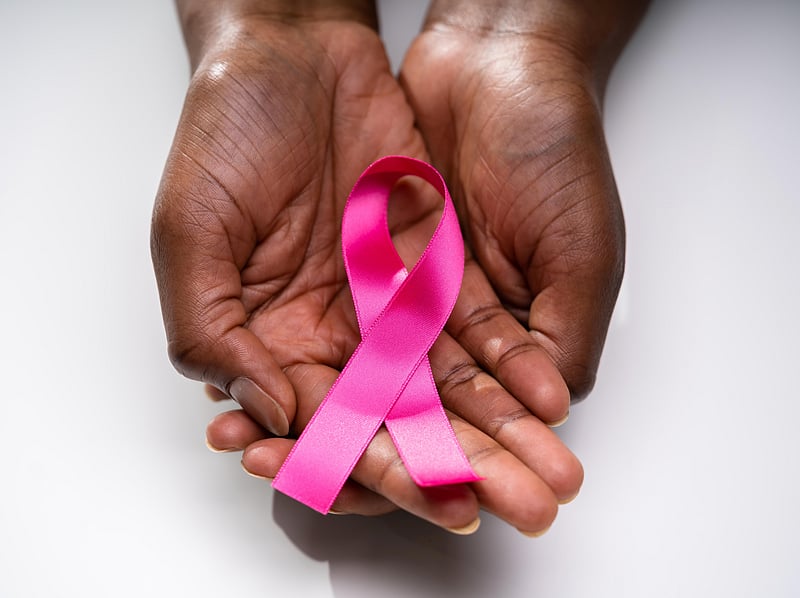Get Healthy!

- Dennis Thompson
- Posted October 4, 2023
Shorter Course of Radiation May Be Safe for Women Undergoing Breast Reconstruction
Breast cancer patients who undergo a mastectomy can probably benefit from a shorter course of more intense radiation therapy, a new study indicates.
Hypofractionated radiation therapy -- which provides a higher dose each session over three weeks -- provides the same protection against breast cancer recurrence and post-surgical complications as a standard course of lower-dose radiation over five weeks, researchers from Dana-Farber Brigham Cancer Center in Boston found.
"Our trial results suggest that hypofractionation can safely be used in this setting without compromising efficacy or increasing side effects,"said senior study author Dr. Rinaa Punglia, a radiation oncologist at Dana-Farber.
"Reducing the requirement to three weeks of radiation therapy would be a significant improvement in the quality of our patients' lives,"she said in a Dana-Farber news release.
Punglia and her team reported the results of the clinical trial on Sunday at the American Society for Radiation Oncology's annual meeting in San Diego. Such research is considered preliminary until published in a peer-reviewed journal.
Many patients with breast cancer opt for a mastectomy as part of their treatment, to reduce the risk of their cancer coming back.
One out of three of those patients will need post-mastectomy radiation therapy to further reduce the risk of recurrence, the researchers explained in background notes.
More women now also opt for implant-based reconstruction to be done as part of the mastectomy, but radiation therapy increases the risk of complications with the breast reconstruction, the researchers added.
These complications can include infection and the formation of scar tissue around the breast that causes hardness and asymmetry.
"We know that radiation can cause unwanted changes to cosmetic results in patients who have mastectomy and reconstruction,"said lead researcher Dr. Julia Wong, a radiation oncologist at Dana-Farber Brigham Cancer Center. "With this trial, we were looking for a way to improve quality of life and cosmetic results without sacrificing efficacy."
To compare the two different courses of radiation therapy, researchers recruited 400 breast cancer patients who were treated with mastectomy and breast reconstruction. The patients were randomly assigned to either hypofractionated or standard radiation therapy.
The investigators then followed the patients for around 40 months to track recurrence and radiation-related side effects. They also evaluated how the patients felt in the months following their treatment.
Cancer-related outcomes were very similar between the two groups, with comparable numbers of patients experiencing recurrence during follow-up. Radiation-related side effects were also similar.
Patient-reported improvements in physical well-being were also similar between the two treatment groups. This suggests that even though the hypofractionated course was shorter, it didn't lead to any significant improvement in quality of life.
However, among patients younger than 45, there was a small but statistically significant benefit in physical well-being at six months for those who received the short-course radiation therapy.
And the shorter course of radiation therapy did reduce the burden on patients' time and finances, the study authors noted.
"The difference between three weeks and five weeks presents a significant improvement in the quality of our patients' lives in terms of the disruption of their work, family, social and financial lives,"Wong said.
For example, those undergoing the short course of radiation therapy required nearly 74 hours of unpaid leave, while those undergoing the longer course required nearly 126 hours, the findings showed.
In addition, fewer patients receiving the shorter course of radiation therapy wound up missing a day of therapy. Interruptions in radiation can lead to worse outcomes.
"These patients have already had so much treatment, including chemotherapy and a lot of surgery,"Punglia said. "They underscored for us in survey responses how onerous it was for them to have five weeks of treatment."
The researchers plan to explore even shorter courses of radiation therapy and novel forms of radiotherapy, to try to reduce the burden of cancer treatment without compromising effectiveness, they said.
More information
HealthDay has more about breast cancer treatment.
SOURCE: Dana-Farber Cancer Institute, news release, Oct. 1, 2023







